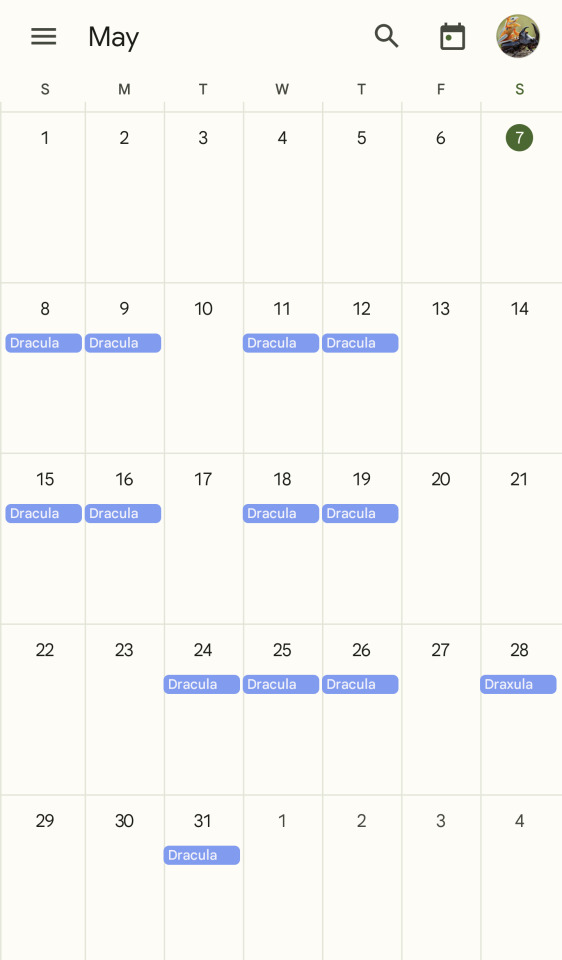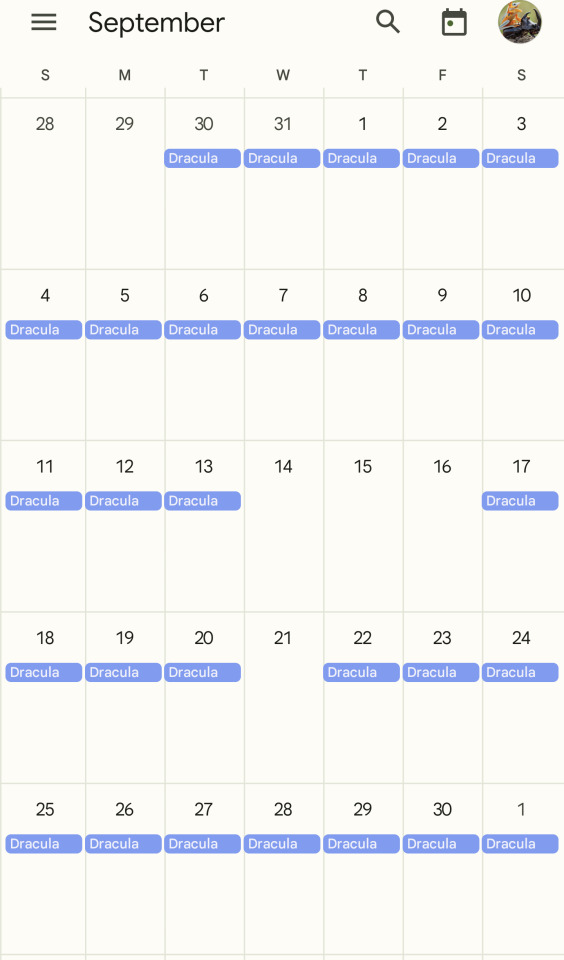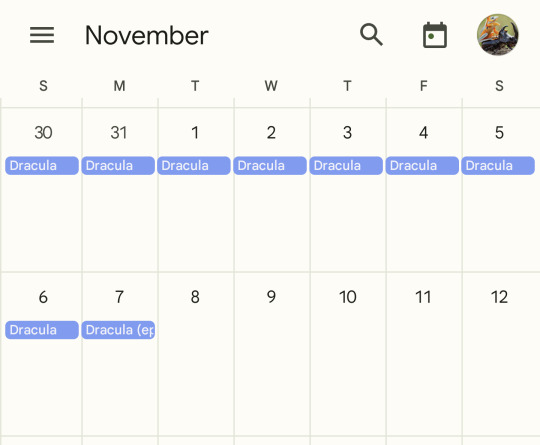Text
Reading the lottery by shirley jackson when i know the twist is like

0 notes
Text
the thing about the historical innacuracy of a funeral home founded in the 15th century is that wooden overcoats is also set on a made up island in the english channel. if anything it's even funnier that on some random island the first funeral home was invented and then it took another few centuries for the concept to take off anywhere else. it does however raise many questions about why piffling needed a funeral home so much earlier in history than everyone else which can be answered by it's piffling they're just like that.
263 notes
·
View notes
Text
So throughout North and South there's all these instances of Margaret needing to be the Backbone of her family/community/acquaintance/whatever, and roll up her sleeves and do the hard work or put aside her feelings to deal with problems, starting with her father having her be the one to tell her mother they're moving, and persisting through the move to Milton and her mother's illness and death, and then even outside the family circle, she's the one who goes and tells Boucher's wife that he's dead (because Higgins and Mr. Hale pussy out) and she's the one that literally takes the blow meant for Thornton, and ultimately to her this is her duty, and it's the right and noble and just thing to do, and she's not lying when she tells Thornton that she would've done the same for any man in that crowd, because all Margaret does all the time is take care of other people, and nobody ever takes care of her.
Which, in my opinion, is why it becomes such an affecting thing that Thornton takes care of the coroner's inquest even as he tries to think so lowly of her. Like, yes, people show Margaret kindness and care (otherwise she never could have coped with, like, everything lmao) but it's mostly out of a sense of obligation, and imo it's not equal to what she does for everyone else. Meanwhile here's Thornton, who's been rejected by her, who thinks poorly of her (and even more poorly still after she knows that he knows that she lied to the cops), who isn't her friend and owes her nothing, but still intervenes to protect her, and brings fruit to her ailing mother, and entreats his own mother to try and advise her (as disastrous as it was) and I just like...
Ok I'm gonna get emotional about this but I feel like Thornton definitely understands that she's sensitive to acts of service as acts of love, so at the very end when she's making the offer to invest in his mill, an act of service that will both save him from ruin and protect his pride, they're FINALLY face to face, speaking the same language and understanding each other, and it's SO telling to me that the scene immediately before has Lennox despairing of his idea to ask Margaret to marry him again, just because she talked to him about the idea of the investment scheme and, like. There's no way she casually threw in the line "oh and I'm in love with Thornton, nbd" but the entire idea is just such an enormous expression of love that, like. Yeah of COURSE she's hopelessly in love with this man! And the same way that Thornton's ending the inquest revealed to Margaret the depth of his feelings and made her understand that he loved her (truly, genuinely loved her with no hope of return and even when she was at the worst she could be in his opinion), Margaret saving the mill is telling Thornton that she loves him in a way she literally could not have expressed more clearly with words and I'm just,,,, damn
257 notes
·
View notes
Text
The fact that we don't have a Clueless-style Northanger Abbey adaptation where Catherine Morland is the most heartbreakingly earnest and unselfaware teenage fangirl with one of the longest self-insert fics on Ao3 is actually a tragedy
110 notes
·
View notes
Text
I feel in the depths of my soul that, if Undine Spragg existed today, she would be a tradwife influencer
#the custom of the country#edith wharton#undine spragg#probably really niche posting but nvm#i need to get this thought out
0 notes
Text
I picked up another one of those "Jane Austen heroine solves a murder" books but this one is about Emma which is maybe the most correct pick for Murder Solving Austen Heroine. Anyway here's my list in order of most to least likely to (try and) solve a murder:
Catherine Morland - not only did she try and solve a murder, she invented a murder just so she could solve it. Iconic. Catherine would leap at the chance to solve an ACTUAL murder that she knew for SURE happened. Whether she's successful depends entirely on how closely the crime followed the plot of the average Regency CSI episode. Either she gets it in one or makes ten wrong guesses in a row. RIP Cathy you would've been the true crime girlie of all time
Emma Woodhouse - she's the smartest prettiest nosiest bitch in Highbury she has appointed herself lead detective (Harriet is the junior detective taking notes and gasping at the correct times) and she Will get to the Bottom of This. Sets up a dramatic reveal to accuse completely the wrong person, but in a way that lets someone else (probably Knightley or Jane Fairfax) figure out who the actual murderer was.
Lizzie Bennet - depends on 1) who died and 2) where. If there's any possibility Lydia did it she does NOT want to know and will interfere with the investigation. If it doesn't affect her personally she wants to know what's going on but is minding her business about it. If it affects her personally she's actually probably the most effective crime solver of the lot presuming she and Darcy can work together (if they're at odds her beef obscures her intellect) (i have not read death comes to pemberly nobody bring it up thank u)
Marianne Dashwood - honestly more likely to be, like, a witness or somehow involved with the victim and get accused of a crime of passion. I think she could figure it out to clear her name but she has to work around Elinor being like LET THE POLICE DO THEIR JOBS.
Anne Elliot - witnessed the whole thing bc the killer didn't notice her in the room. Fortunately Wentworth is willing to listen to her and it gets solved quickly.
Fanny Price - witnessed the whole thing bc the killer didn't notice her but nobody listens to her except the killer who then kidnaps her to tie up loose ends. Edmund rescues her and when he's like "why would you come after Fanny" and the killer's like "well she saw the whole thing" they're all like "Fanny why wouldn't you say anything" and she just stares into the camera like. Ok.
Elinor Dashwood - not her circus NOT her monkey also she's impeding the investigation bc the victim was Willoughby and she helped Colonel Brandon hide the body.
602 notes
·
View notes
Text
everyone talking about Ian McKellen's all-trans production of Twelfth Night stop saying Twelfth Night is Shakespeare's most trans play!!!! it's not even a trans play!!! please refer to my colleague Colby Gordon's footnote 65 on p. 186 of his book Glorious Bodies: Trans Theology and Renaissance Literature:

39 notes
·
View notes
Text
Possible unpopular opinion: treating having a special interest as equivalent to being an expert on the topic is another form of the savant stereotype.
22K notes
·
View notes
Text
I'm thinking about responses to Dracula - both adaptations and critical responses - and how the main thing that they seem to get wrong (at least from my perspective) is their approach to the romantic relationships in the novel. You know the kind of thing: Arthur is boring, Jonathan is boring, Lucy lusts after all three suitors, Mina lusts after Dracula, the suitors must all be suppressing their jealous hatred of one another.
It feels to me like it all comes from the same place, and that place is the idea that romantic relationships, particularly at the start of a story, can't or shouldn't be straightforward.
Instead, Dracula begins, near enough, with two women who have both met and are set to marry men who they love and who love them in return, and where it seems like there is no intrinsic reason why they shouldn't live happily ever after.
And normally we don't expect that. Certainly these are not the narrative rules of a romance (which Dracula isn't, but bear with me). It's a little bit like if Elizabeth Bennet was actually really into Mr Collins and accepted him right away, if Jane Eyre was blissfully happy with St John Rivers, or if Margaret Hale fell for Henry Lennox. Jonathan and Arthur are the safe choices for Mina and Lucy, and we don't normally expect heroines to want the safe choices.
Mina and Lucy do. Arthur is strategically the best husband for Lucy - good family, pots of cash, no weird job, her mum likes him - but he is also the man that Lucy loves. Mina and Jonathan are utterly besotted with one another, and though Jonathan isn't as wealthy as, say, Jack Seward, his career is also on the up. He's a good choice.
I think this works brilliantly in Dracula, because the later threat is so much the greater for the fact that everyone starts out the novel so strong. The fact that they are so happy to begin with means they have more to lose.
So many responses to Dracula want this to be a novel in which love is complicated, but instead it's a novel in which love is both pretty straightforward and always good. And I think it's more interesting for it.
2K notes
·
View notes
Text
Charlotte Lucas is such an important character to me. It’s so rare to have a female character who is entirely uninterested in romantic and marries for reasons other than love who is also portrayed as a decent, sensible person.
Whether you view her declaration of “not being romantic” as her being aro/ace, otherwise queer or just having different priorities, I love how not be interested in romantic love doesn’t mean she doesn’t love at all. She cares deeply for her family, especially her sister and of course for Elizabeth, to the point that she made sure to personally let her know about her engagement to Mr Collins in order to minimise hurt feelings as well as plotting out different men Lizzy could potentially marry because she knows Lizzy wants that romantic love as well as financial stability and even though she doesn’t feel that way, she cares enough about her friend to understand.
Lizzy reacts poorly to Charlotte’s choice to marry Mr Collins initially, for understandable reasons, but she and the reader alongside her eventually come to understand it was a practical decision and that marrying for money doesn’t make her a selfish person. She is a good wife to Mr Collins but she also gets to have her own home and space away from her family where she can live in relative comfort. She’s such an unique character and I really appreciate Austen including her and showing how marriage in this period was not just about love but also a financial agreement and women aren’t the problem for recognising this and trying to use this to get the best possible outcome for themselves and their families
756 notes
·
View notes
Text
I'm always baffled when I see Pride and Prejudice (1995) held up as the gold standard for adaptations of the novel and encounter claims that it is completely 100% book accurate apart from (mainly said in jest, I know) the scenes of Mr Darcy bathing, fencing and diving in the lake because, while the appreciation for damp Colin Firth suggests we did in fact watch the same series, perhaps we did not read the same book...
While a very very good period drama, Pride and Prejudice (1995) does unfortunately miss the mark on several points. Mr Collins is not a short, greasy middle-aged man; there is far too much Wickham; we miss out on a lot of Mrs Bennet's rivalry with Lady Lucas as well as her reaction to Elizabeth's engagement to Mr Darcy and in my opinion, the biggest disappointment of all, is the handling of the Rosings arc.
Proposal aside (which is to me practically perfection) we miss out on the hilarious misunderstanding between Darcy and Elizabeth of her telling him where she takes her daily walks in hopes he will avoid her (as she believes their dislike to be mutual) while Darcy takes it as an invitation to walk with her (much to Elizabeth's frustration). Instead, we merely see a brooding Mr Darcy on horseback encountering Elizabeth and just... wordlessly riding off?! An interaction which looks all the more peculiar given Colonel Fitzwilliam's hints, upon paying a first visit to Hunsford Parsonage, that Darcy has spoken much of her and Elizabeth wondering aloud why Darcy keeps staring at her. That particular scene makes both of them look a bit stupid, as Darcy hears that Elizabeth might not have such a fond opinion of him yet still proposes and Elizabeth gets a hint that perhaps he doesn't think as ill of her as she wishes him to...
And then the ending is also always a disappointment to me, as the lovely dialogue between Darcy and Elizabeth post-proposal is almost entirely omitted, in favour of more time spent earlier in the episode on Wickham and Lydia. By the time the proposal occurs, there's not time for much more than a protracted double wedding. Sigh.
Listen, there's a lot to enjoy and I am not immune to the charms of a damp man dressed in period costume (or even less...) BUT let's also be realistic about its shortcomings and acknowledge that nothing will ever compare to the wit and charm of Jane Austen's masterpiece.
#i so agree about the mr collins!!#like he genuinely physically repulsed me and mr collins isn't supposed to be like that!#the only way i can describe mr collins in the 1995 version is slimy#sorry op for taking a small part of your argument and going into it too deep#pride and prejudice
213 notes
·
View notes
Text
When somebody shares a quote by a famous author like it's something the author personally said and believed, but you know it was actually spoken by a character you're not supposed to like... 😐
52K notes
·
View notes
Text
Is lizard fashion the Dracula version of chicken jockey?
1 note
·
View note
Text







all right so here's the schedule of when dracula daily will be updated, as gleaned from the archives
please share this, it was a pain in the ass
23K notes
·
View notes
Text
For me the problem with The Moonstone is that it is held up as the first detective novel, and because of that you get later stories that come along and do it better
I also think the length is against it as well, i was listening to the audiobook and thought that Sherlock Holmes would have solved the case by the time Betteredge had introduced everybody.
(Poirot would have taken a bit longer because he needs time for his gay monologue)
#the moonstone#wilkie collins#it's good to try new things but sometimes stuff just doesn't work#and this was one of those unfortunately#feel free to disagree! i always like hearing different opinions to mine
1 note
·
View note
Text
im so serious about this but if youre autistic and especially if youre chronically ill creative labour cannot be your only way to relax. working on a creative project is still working. take time to do nothing. its good for you i promise.
#if you can't meditate i recommend watching painting videos#they are very relaxing and i can now finally meditate#also there are loads on youtube#autism
31K notes
·
View notes
Text
I like Wuthering Heights because it basically says, "Yeah, you can have a soul mate. But he's basically the worst. That says a lot about you." Like all the other soul mate shit presents the idea that you have your perfect other half. Nuh uh. Your other half is gonna be exactly as rotten as you. And it's gonna piss you off. Seeing all your worst flaws up close and personal ain't so nice now, is it?
2K notes
·
View notes